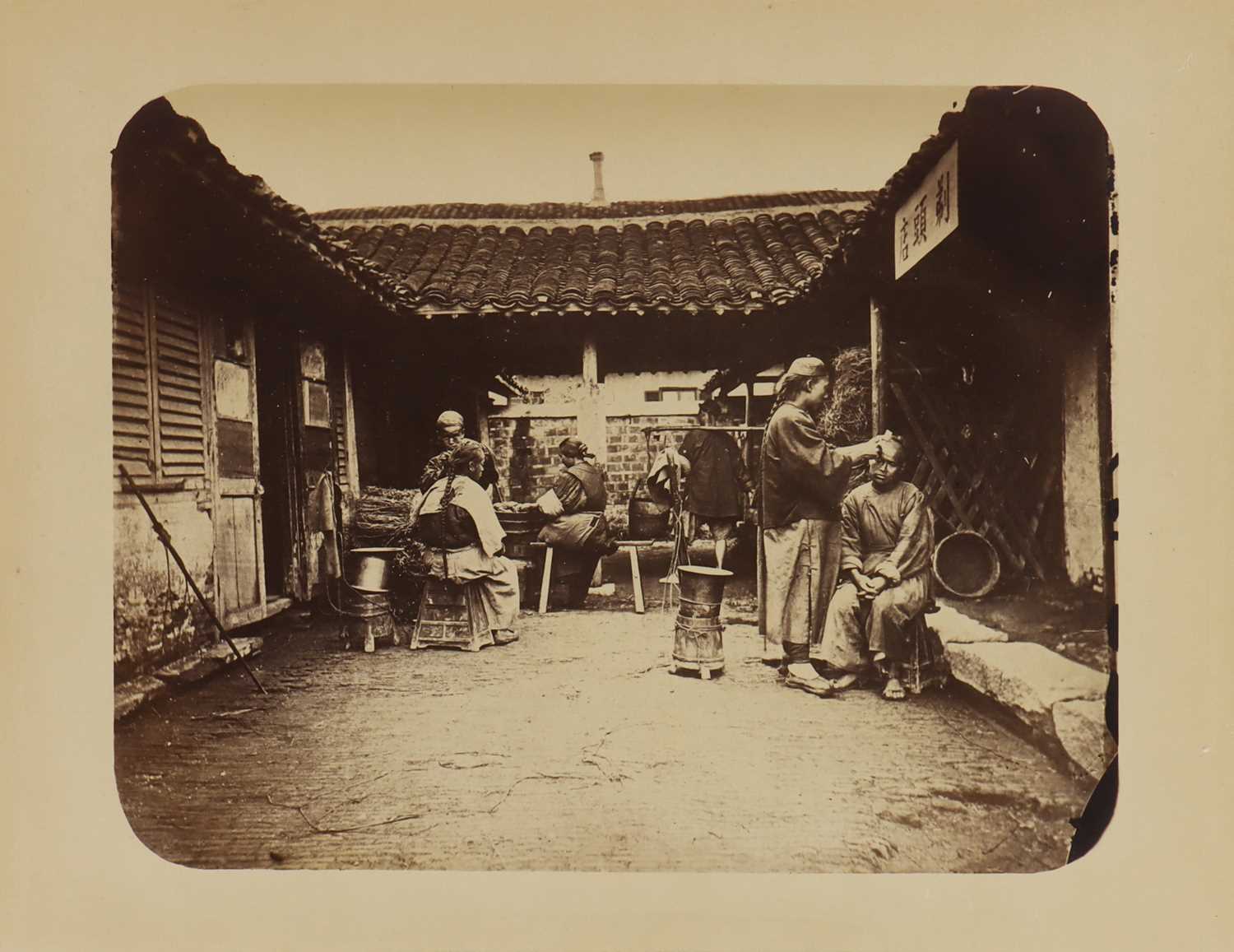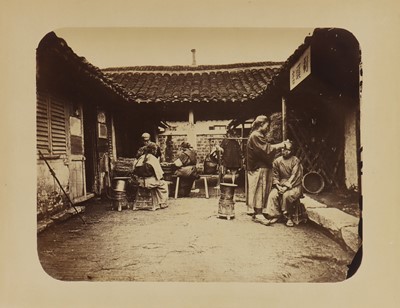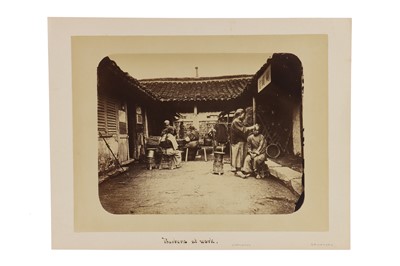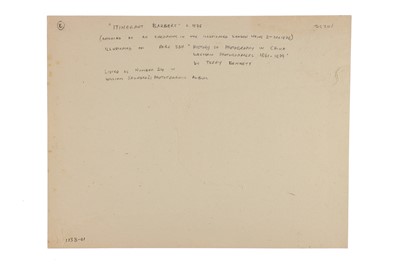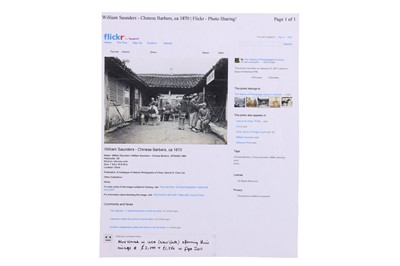30th Apr, 2024 13:00
Photographs & Optical Toys
China. William Saunders
Albumen print, 270mm x 210mm mounted on thin card.
The image is titled "Barbers at Work" c1875.
This appeared as an engraving in the London Illustrated News on 2nd December 1876 and on Page 334 in History of Photography in China, Western Photographers 1861-1879, by Terry Bennett.
William Thomas Saunders (1832–1892) was a prominent British-born photographer who established himself in China, gaining renown as the foremost photographer in Shanghai during the late Qing dynasty. Pioneering the introduction of hand-colored photographs in China, Saunders left an indelible mark on the photographic landscape of the time.
Born in Britain in 1832, Saunders initially travelled to China in 1860, as an engineer. Subsequently, after returning to Britain and immersing himself in the study of photography, he equipped himself with photographic apparatus and returned to China in January 1862. There, he established one of Shanghai's inaugural photography studios, strategically positioned in close proximity to Astor House Hotel at the epicenter of Shanghai's commercial district. Over the course of twenty-five years, Saunders' studio thrived, a testament to his amalgamation of significant photographic talent, business acumen, and marketing prowess.
While primarily recognized for his expertise in portraiture, Saunders' enduring fascination with China motivated him to document current events, local scenery, and the indigenous population. His photographic endeavors encapsulate a pivotal juncture in Chinese history, coinciding with Shanghai's ascendancy as an international commercial hub. Saunders' collection of photographs provides an intimate portrayal of Shanghai's diverse populace, elucidating their traditional lifestyles and occupations. Studio portraits by Saunders frequently incorporated props emblematic of the subject's trade or social standing, with an evident emphasis on the subjects' attire and hairstyles. Despite the posed nature of many of Saunders' depictions of everyday life, dictated by the limitations of photographic processes, they authentically capture the essence of 19th-century Chinese existence. Moreover, his work significantly contributed to the dissemination of knowledge regarding Chinese customs and traditions in Western spheres.
Retiring to England in the late 1880s, Saunders maintained a regular travel schedule to China. During a return voyage to Shanghai, his health declined precipitously, culminating in his demise in December 1892 at the age of sixty, succumbing to bronchitis. Saunders' enduring legacy is encapsulated in his pioneering contributions to the field of photography, capturing the essence of a transformative period in China's history and facilitating cross-cultural understanding through his compelling visual narratives.
Albumen print, 270mm x 210mm mounted on thin card.
The image is titled "Barbers at Work" c1875.
This appeared as an engraving in the London Illustrated News on 2nd December 1876 and on Page 334 in History of Photography in China, Western Photographers 1861-1879, by Terry Bennett.
William Thomas Saunders (1832–1892) was a prominent British-born photographer who established himself in China, gaining renown as the foremost photographer in Shanghai during the late Qing dynasty. Pioneering the introduction of hand-colored photographs in China, Saunders left an indelible mark on the photographic landscape of the time.
Born in Britain in 1832, Saunders initially travelled to China in 1860, as an engineer. Subsequently, after returning to Britain and immersing himself in the study of photography, he equipped himself with photographic apparatus and returned to China in January 1862. There, he established one of Shanghai's inaugural photography studios, strategically positioned in close proximity to Astor House Hotel at the epicenter of Shanghai's commercial district. Over the course of twenty-five years, Saunders' studio thrived, a testament to his amalgamation of significant photographic talent, business acumen, and marketing prowess.
While primarily recognized for his expertise in portraiture, Saunders' enduring fascination with China motivated him to document current events, local scenery, and the indigenous population. His photographic endeavors encapsulate a pivotal juncture in Chinese history, coinciding with Shanghai's ascendancy as an international commercial hub. Saunders' collection of photographs provides an intimate portrayal of Shanghai's diverse populace, elucidating their traditional lifestyles and occupations. Studio portraits by Saunders frequently incorporated props emblematic of the subject's trade or social standing, with an evident emphasis on the subjects' attire and hairstyles. Despite the posed nature of many of Saunders' depictions of everyday life, dictated by the limitations of photographic processes, they authentically capture the essence of 19th-century Chinese existence. Moreover, his work significantly contributed to the dissemination of knowledge regarding Chinese customs and traditions in Western spheres.
Retiring to England in the late 1880s, Saunders maintained a regular travel schedule to China. During a return voyage to Shanghai, his health declined precipitously, culminating in his demise in December 1892 at the age of sixty, succumbing to bronchitis. Saunders' enduring legacy is encapsulated in his pioneering contributions to the field of photography, capturing the essence of a transformative period in China's history and facilitating cross-cultural understanding through his compelling visual narratives.
Auction: Photographs & Optical Toys, 30th Apr, 2024
